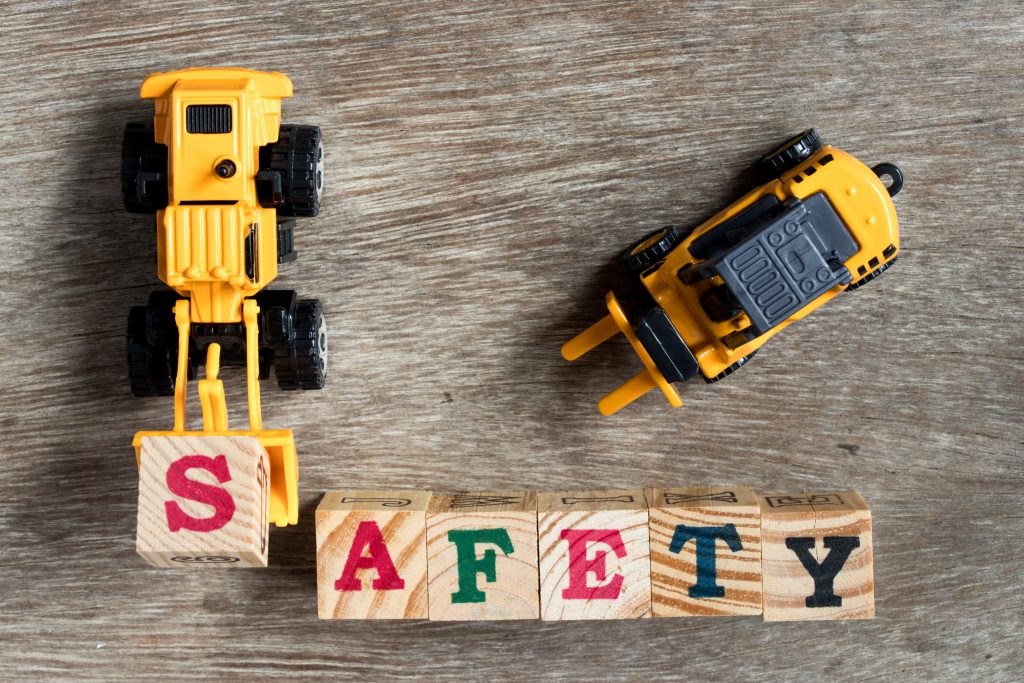Occupational Safety: 5 Ways to Stay Safe and Sound at Work
Did you know that in 2017 around 14 worker fatalities happened every single day on the job due to common incidents like falling or getting hit with an object? It’s no surprise that occupational safety has become increasingly important to businesses and their employers!
Even if you just sit at a computer each day rather than work with dangerous equipment, your workplace still has some risks you may be unaware of.
Thankfully, your company likely already offers some workplace safety training. You can also protect yourself if you understand occupational safety risks in your workplace and follow some basic guidelines on the job.
We’ll show you five simple ways you can stay safe and sound while at work.
1. Understand Your Workplace’s Risks
Whether you work in a factory, office or even outdoors, you need to be aware of the specific hazards at your workplace. These can include the dangers of using any tools and equipment, bending and lifting heavy items, and handling chemicals and other hazardous materials.
Hopefully, your employer-provided workplace safety guidelines during your training and maybe even offered a formal workplace safety training program.
But you can still do your own research or read any manuals included with materials and items you handle. You can also ask your employer to explain the specific risks you’ll face in your position.
2. Pay Attention to Ergonomics
Whether you spend your day typing at a computer or do more demanding work lifting boxes in a warehouse, you can strain yourself if you don’t use your body properly.
Keeping good posture and avoiding staying too long in one position can help prevent aches and pains.
If you do heavy lifting, be familiar with the proper lifting technique. Avoid bending forward to pick up items, and don’t be afraid to ask for help with bulky objects.
For office workers, looking away from your computer screen every 20 minutes or so can keep your eyes from getting strained. Having your chair positioned properly so that you can type and use your mouse without stretching too far is also essential.
3. Don’t Forget to Rest When Possible
Did you know that overworking yourself is actually one of the most common causes of workplace accidents? That sure gives you a good excuse to take advantage of any breaks your employer offers!
Not only does overworking yourself physically wear you out, but it also makes it harder to focus on job tasks. This can be especially dangerous if you’re handling heavy equipment, taking care of others, driving a vehicle, or working with toxic chemicals.
If your employer doesn’t give you much break time, you can still improve your workplace safety if you do your riskiest, demanding work earlier in your workday when you’re the least fatigued.
4. Be Prepared for Emergencies
Even if your employer dedicates a lot of time to ensuring safety in the workplace, emergencies still can happen. A fire might break out, or your building may need to be evacuated.
This means having an emergency plan is one of the most important occupational safety tips!
Be familiar with your workplace’s emergency exits and any special room you should go to in the event of a natural disaster like a hurricane. Your company should also give you access to first aid supplies and keep you informed of their location.
5. Use Safety Gear and Equipment Properly
Even the best safety gear only works if you use it properly! Whether you wear a helmet, eye protection, gloves, or even special pants or boots, read any documentation provided, and ask your employer if you’re ever in doubt.
When operating machinery, using cutting tools, or working with other hardware, follow all procedures your employer provides you. Avoid getting too close to sharp or moving objects, and inform your employer if you think a work tool is damaged or malfunctioning: Doing so might just prevent a serious accident!
Now Go Use These Occupational Safety Tips!
It’s time to go learn more about your work environment and equipment, practice better ergonomics, and be better prepared for incidents you might face on the job.
You might even want to share these tips with your coworkers and help them be safe. Who knows? You might even convince your employer to take more steps to improve your safety in the workplace!
Whether you want to learn more about occupational safety or anything else, be sure to check out our other educational posts to share!





